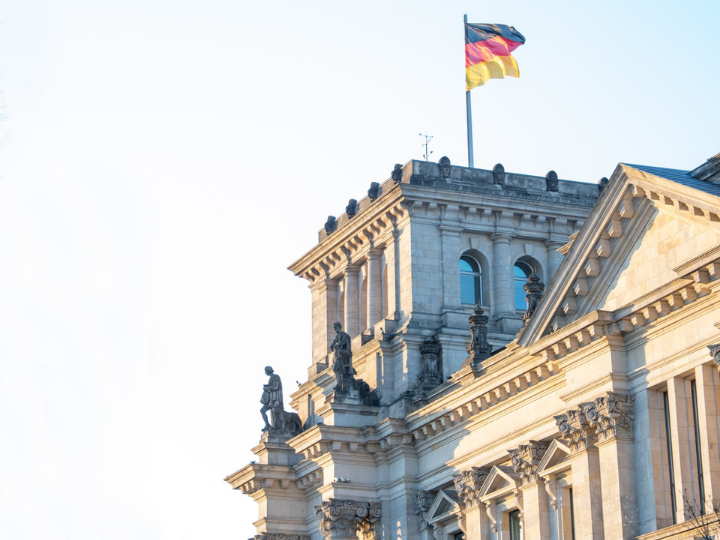by Judy Dempsey*
There is no amount of red carpets and plaudits for Angela Merkel’s last official visit to the United States as German chancellor.
What a change from previous years when Donald Trump was in the White House. He had only scorn for Merkel—and for that matter, Germany.
Trump also had only praise for those European Union countries that either ran rough-shod over the rule of law or that criticized the EU, whose origins over seventy years ago were due to the immense efforts and foresight of the then U.S. administration.
Above all, the rule of law, human rights, and what was taking place in Europe’s immediate neighborhood—and indeed inside the EU itself—didn’t bother Trump. It was as if the more troubles were besetting Europe, the better the chances the EU would disintegrate.
U.S. President Joe Biden is of a different hue. China is one of his main foreign policy priorities. Because of that, the United States wants a strong, united Europe anchored in a transatlantic partnership that can defend itself on all fronts.
Yet the Europe Merkel leaves behind as she departs from the chancellery this coming September, after nearly sixteen years in power, is being assailed from within and from outside.
Without dealing with the former, Europe, and this includes its non-EU neighbors, will be in no shape to withstand the political, economic, and ideological rise of China or the persistent meddling of Russia.
Over the past decade, several EU member states have challenged the rule of law, media freedom, and an independent judiciary. Without these fundamental principles, democracy’s ability to function is in peril. The legal security of citizens cannot be guaranteed. The belief and confidence in the integrity of judges and the courts will be undermined.
This is what is happening in Poland, the EU’s fifth most populous member and a country that has enormous potential for playing a pivotal role in the EU’s relations with Ukraine, Belarus, and indeed Russia.
But the way in which the governing Law and Justice Party (PiS) has attacked the independence of the Constitutional Tribunal and packed it with loyal supporters is challenging what Poland signed up to in 2004 when it joined the EU: the rule of law.
Then, a measure of sovereignty was ceded by Warsaw to Brussels. But, as the European Court of Justice ruled on July 14, a special disciplinary chamber set up PiS directly challenges EU law. Poland could be close to walking away from EU legal norms. The consequences for both sides are unpredictable.
The rule of law and the integrity of the courts in particular have also been repeatedly challenged in other EU countries, including Bulgaria, Romania, and Hungary.
As for the media, the lives of some journalists in other countries—Greece, Malta, and more recently the Netherlands—are in mortal danger. Furthermore, deniers abound—from the Holocaust and climate change to coronavirus and Russia’s role in Eastern Ukraine. It’s as if the past, in which the EU was built on the rubble of the Second World War, was being relegated to the history books instead of being an architectural structure that needed constant care.
That is why Belarus affects Europe’s moral and political architecture.
This is a country that between 1939 and 1945 was mauled by the Nazis and the Red Army. This is a country whose citizens are now struggling for the rights and values that EU citizens have enjoyed over the past decades.
Yet even though Belarus is the EU’s direct neighbor, the extraordinary lengths that the regime is pursuing to destroy society through repression, detentions, and the trampling of human dignity and aspirations hasn’t jolted most of Europe. EU sanctions haven’t stopped the repression.
Maybe the decision by Belarusian President Alexander Lukashenko to cynically send hundreds of refugees across to Lithuania could change the European mindset, given the pathological fear of refugees and migrants many EU member states have.
That aside, Belarus and Poland have something crucial in common beyond history and shared borders. It is the experience of a struggle for freedom and security. The latter is not an exclusively military term. It is the assurance citizens have that they will have redress before independent courts and access to independent lawyers. That is absent in today’s Belarus.
To a different degree, there is also a struggle taking place in Poland and other EU countries. Without a strong and independent rule of law inside the EU, Europe will be in no position to defend itself against non-democratic systems that seek to influence the future direction of Europe.
That is why Merkel’s valedictory visit to the White House is more than symbolically important. It has a special political significance because Biden has put human rights and the rule of law back at the top of the administration’s foreign—and domestic—policy agenda.
These are values that Merkel embraced when she took office back in 2005. They are still close to her. But the exigencies of realpolitik fuelled by the sense of China’s ineluctable rise and Russia’s persistent meddling though cyber attacks and disinformation campaigns in European elections may have dented her commitment to such values.
It is not too late for her successor to rescue those values that built post-1945 and post-1989 Europe. They still define the continent. But for how much longer?
*nonresident senior fellow at Carnegie Europe and editor in chief of Strategic Europe
**first published in: carnegieeurope.eu




 By: N. Peter Kramer
By: N. Peter Kramer
